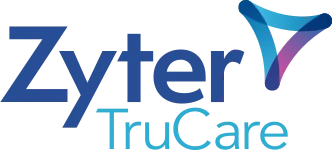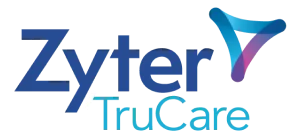- Zyter|TruCare’s AI Division: Avikar Govil and Shiva Sangoju

As healthcare continues to evolve, the complexities of prior authorization (PA) processes significantly impact patient care and administrative efficiency. The American Medical Association (AMA) reports that 92% of physicians experience delays in necessary care due to prior authorizations, with 86% noting a negative impact on clinical outcomes. In response to new regulations from the Centers for Medicare & Medicaid Services (CMS) aimed at streamlining these processes, there’s a significant opportunity for payers to innovate using AI technology. By integrating AI, payers can not only meet CMS deadlines more effectively but also achieve specific goals such as a 90% automation rate for fax-based PA requests, a 60% reduction in processing times, a 70% decrease in data entry errors, and enhanced provider satisfaction due to improved processing times and transparency.
The Current Landscape of Prior Authorization
The AMA consistently highlights the disruptive impact of prior authorization on patient care, emphasizing how these delays can complicate treatment regimes and exacerbate patient conditions. This issue is further compounded by the administrative burden it places on healthcare providers, often resulting in significant resource diversion from patient care to paperwork. The CMS Interoperability and Prior Authorization Final Rule aims to address these inefficiencies, promising substantial savings of $15 billion over ten years by enhancing electronic data exchanges and reducing administrative tasks. This rule is seen as a crucial step toward reducing the time healthcare staff spend on non-clinical tasks, allowing them to refocus on patient care.
Insights from Recent Data
Data analysis by Kaiser Family Foundation (KFF) reveals an alarming trend in the healthcare industry: an increase in prior authorization denials within Medicare Advantage plans, with over 46 million requests processed annually. The AMA’s 2024 survey echoes this, highlighting significant administrative burdens placed on providers. These trends underscore the urgent need for robust systems that can handle these requests more adeptly, ensuring that denials are managed transparently and efficiently, and that necessary care is not unduly delayed.
The Role of Technology in Streamlining PA
In response to these ongoing challenges, the healthcare sector is increasingly adopting technology to refine and expedite the prior authorization process. Digital solutions designed to enhance operational efficiency through comprehensive automation and sophisticated data management are pivotal in this sector-wide transformation. By integrating technologies such as large language models (LLMs), Zyter|TruCare not only speeds up the processing of prior authorizations but also ensures higher accuracy and compliance with new regulatory standards. This technological support assists healthcare organizations in navigating the complexities of prior authorization, enabling better resource allocation and improved patient outcomes
Zyter|TruCare’s Strategic Approach to Prior Authorization
Zyter|TruCare offers a strategic and integrated approach designed to streamline prior authorization in alignment with new regulatory demands, ensuring more efficient and timely patient care. Core components of TruCare include:
- Robust Intake Channels: TruCare supports a variety of submission methods, including direct system integrations and digital portals, to simplify the submission process and provide seamless connectivity between providers and payers.
- Advanced AI Integration: Our platform significantly reduces manual input and accelerates decision-making through the use of OCR and AI-driven data processing, transforming how data is handled and analyzed.
- Seamless Process Management: TruCare’s business rules engine automates the entire PA lifecycle, from initial submission to final decision, ensuring that requests are processed in compliance with regulatory timelines.
- Automated Decision-Making: Routine authorization requests are automatically processed, minimizing delays and allowing clinical teams to focus on patient care.
- Interoperability and API Integration: The platform fully complies with HL7 FHIR APIs, enabling seamless data exchanges between healthcare systems and ensuring that critical information is always accessible.
Empowering Providers and Payers for Seamless Care
Zyter|TruCare provides a transformative solution for healthcare payers by enhancing the efficiency of the prior authorization process. The platform significantly reduces administrative burdens, enabling faster decision-making and fewer denials. This automation allows clinical teams to dedicate more time to patient care, ensuring patients receive the necessary treatments without undue delays. With TruCare, the risk of care disruption is minimized, promoting a smoother, more reliable healthcare delivery system
For payers, the platform automates and optimizes the prior authorization workflow, driving down operational costs, ensuring compliance with complex regulatory frameworks, and enhancing transparency in decision-making. This integrated approach fosters a more efficient and collaborative relationship between providers and payers, ultimately creating a unified ecosystem that improves overall efficiency, reduces costs, and drives superior healthcare outcomes. TruCare addresses the immediate challenges of prior authorization and establishes a scalable framework for sustainable, long-term improvement in healthcare operations.
Toward a More Efficient Healthcare Future
Zyter|TruCare is dedicated to enhancing the efficiency of prior authorization in healthcare through the integration of advanced AI technologies. Our approach focuses on automating complex processes, improving operational accuracy, and maintaining ethical AI practices that ensure transparency and human oversight. We are committed to continuous development to meet industry needs and regulatory standards. Zyter|TruCare invites healthcare providers to explore our innovative solutions, designed to streamline prior authorization and improve patient care outcomes. Join us in creating a healthcare environment where technology and care converge for better results.







